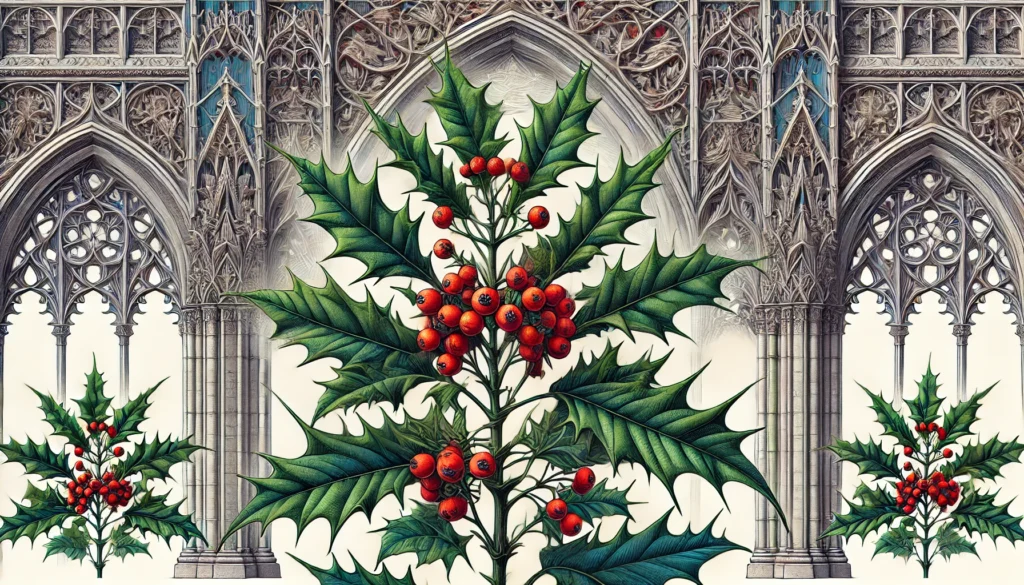

Home » Cat Plants » Could the Winterberry Plant Harm Your Cat?

The Winterberry plant, scientifically known as Ilex verticillata, is a species of holly native to eastern North America. While this festive plant is popular for its bright red berries during winter, cat owners should be aware of its potential toxicity.
Winterberry is considered moderately toxic to cats if ingested. The plant contains compounds that can cause gastrointestinal upset in felines.
Commonly found in gardens, landscapes, and holiday decorations, it’s important for cat owners to exercise caution and keep their pets away from this plant.
Ingestion may cause mild gastrointestinal upset, but is generally not life-threatening.
Ingestion can result in mild symptoms like vomiting, diarrhea, or drooling. Rarely fatal but may require veterinary care.
Eating these plants can lead to more pronounced symptoms like abdominal pain, lethargy, or difficulty breathing. Veterinary intervention may be necessary.
Ingesting even small amounts can cause severe symptoms like organ damage, seizures, or cardiac failure without rapid treatment.
All parts of these plants are extremely poisonous to cats and can quickly lead to death, even with immediate veterinary care.
** Please note: Please note that toxicity level can vary based on the amount ingested and the specific cat. It's always best to keep these plants completely inaccessible to cats and seek immediate veterinary care or call the poison hotline if you suspect your cat has ingested any part of a toxic plant.
If your cat ingests Winterberry, they may experience various symptoms of plant poisoning. While the toxicity is generally mild, it’s essential to be aware of potential signs of distress in your feline companion.Cats that have consumed parts of the Winterberry plant may exhibit:
In most cases, these symptoms are self-limiting and resolve within 24-48 hours. However, if you notice any of these signs or suspect your cat has ingested Winterberry, it’s best to consult with your veterinarian for proper guidance and treatment.
If you bring your cat to the veterinarian after suspected Winterberry ingestion, they may follow these steps to diagnose and treat your pet:

A: Yes, Winterberry is harmful to cats. The berries contain toxins that can cause vomiting and diarrhea if ingested by your feline.
A: Symptoms of Winterberry poisoning in cats include vomiting, lethargy, and diarrhea. If you notice these signs, contact your veterinarian immediately.
A: Winterberry is moderately toxic to pets, including cats. Ingestion of the berries can lead to gastrointestinal upset and other severe symptoms.
A: Cats can recover from Winterberry poisoning with prompt veterinary care. However, the severity of symptoms depends on the amount ingested.
A: It is not safe to grow Winterberry in a garden with pets, especially cats. To ensure their safety, consider planting non-toxic alternatives like catnip or bamboo.
A: If your cat eats Winterberry, seek veterinary care immediately. Early intervention is crucial to prevent severe complications from the plant’s toxins.
Winterberry, also known as Christmas berry or Michigan holly, has a rich history in North American flora. Native to eastern and central North America, this deciduous holly has been valued for centuries by indigenous peoples for its medicinal properties. The plant’s bright red berries have made it a popular ornamental shrub, especially prized for winter landscapes and holiday decorations.
In traditional medicine, Native American tribes used various parts of the Winterberry plant to treat a range of ailments, including fever and stomach problems. The plant’s bark was sometimes used to make a tea for treating colds and other respiratory issues.
During the 18th and 19th centuries, European settlers in North America began incorporating Winterberry into their holiday traditions, using its festive berries in wreaths and other decorations. Today, Winterberry remains a popular landscaping plant, valued for its ability to provide winter interest and attract wildlife.
Please note: The information shared in this post is for informational purposes only and should not be considered as veterinary medical advice.
🐾 A hilarious or heart-melting cat video
🐾 Our latest paws-on review of a cool cat toy